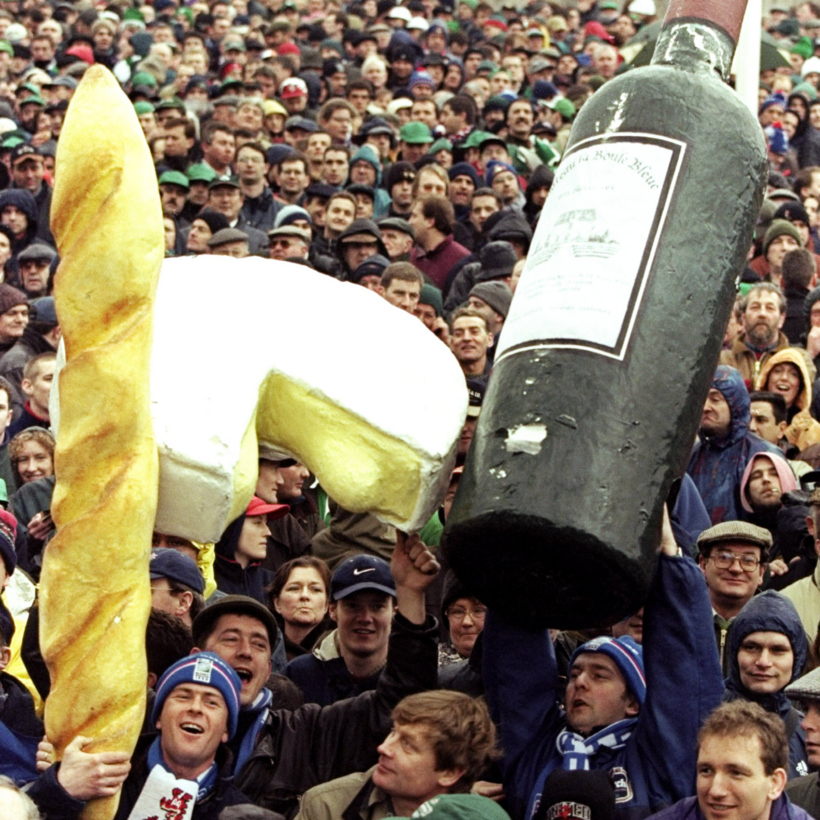It was in Toulon that I was first exposed to the madness of French rugby. Actually, it was halfway up Mont Faron, around midnight.
We were covering a football tournament in the area. My companion that evening, another English sports writer, had arrived for dinner attired in an England rugby shirt. Rugby’s a working-class sport in France, unlike England, and the Toulonnais in particular are mad for it. So we attracted a lot of attention. Over too many beers and plenty of rugby chat it was then suggested we went back to the clubhouse of a local amateur club that housed an impressive collection of whiskies. Our French host had the keys, and a car, which was needed as the destination turned out to be the other side of the mountain overlooking the city.
So a white-knuckle ride ensued, followed by more copious consumption, and then back down in an aging Renault around hairpin bends, piloted by a man hell-bent on personal, and communal, destruction. Having already taken this route in daylight for sightseeing purposes, we knew the consequence if this loon misjudged a corner. Rough calculation: ten seconds to rock bottom and oblivion. Somehow we made it home, often with as many as two wheels on the road. It was a torrid introduction to the magnificent insanity of French rugby, and its many deranged enthusiasts.
So there now follows a recipe for lapin à la moutarde. You’re going to need a rabbit.
If gear shifts like that don’t faze you, you’re probably the target readership for Peter Bills’s journey to the heart of French rugby: Le Coq. Like its subject, and like our friend from Toulon, it’s all over the place. Part history lesson, part travelogue, part paean, part autobiography, part restaurant guide and cookbook. Just as France delivers rugby from the gods one year and from the gutter the next, so Le Coq might be le crock to those expecting a linear story.
On one page is a colorful account of the rugby competition at the 1900 Paris Olympics, on the next a digression about a romantic adventure embarked on by the author some 70 years later, involving a failed attempt to purchase pains au chocolat outside a railway station in Amiens. Chapter headings — A Golden Era: Toulouse–Castres-Narbonne-Perpignan — barely serve as signposts as the tale sidesteps conventional narrative, drops its shoulder and bounds off in an entirely unexpected direction. “The French can get into that rhythm of doing the unexpected, so that they expect it to work,” the Australian coach Michael Cheika tells Bills.
Just as France delivers rugby from the gods one year and from the gutter the next, so Le Coq might be le crock to those expecting a linear story.
And Le Coq captures the spirit of that. Take the meditation on the fate of Bourgoin-Jallieu rugby club, French Championship runners-up in 1997, European Challenge Cup runners-up in 2009, and now languishing in tier three after near financial collapse. A cursory paragraph is devoted to why this might have happened before the passage gives way to a recipe for Savoyarde pizza. Seriously, it does. “First, make the dough. Use 400 grams of fine flour, one sachet of yeast …” Delicieux, the author concludes before returning to the rise of the Clermont Auvergne club. Still, the book’s 400 pages long and, who knows, by chapter 4 you might be feeling peckish.
What is undeniable is Bills’s passion for all things French, and the nation’s rugby most of all. And he sells that passion well. His journey is full of diversions involving the characters that set French rugby apart. Take Jean-Louis Tolot, a front row for Agen, who got into a fight during a game with the Racing prop Murray Dawson. The complication was that Dawson happened to be engaged to Tolot’s sister, Sylvie, who, seeing her brother’s rearranged face, called off the marriage in an ear-splitting snit outside the dressing room. Tolot, mind, got off lightly. Bills also writes of a French forward whose nose was broken 37 times during his career.
This is where his book works best, mining the cultural clashes in French rugby, its artistry and extremes of violence. Teeth are lost, snouts made wider and bones broken, yet, as Bills makes clear time and again, when the plan comes together there is no beauty in the sport quite like it. Names such as Debussy and Renoir litter the scene before we return to the crunch of fist against phizog or, indeed, to a recommendation of what to order at Le Pub in Mont-de-Marsan. The piperade is good, apparently.
It’s that sort of book. Best read over a hunk of pâté de campagne and an expectation-lowering bottle of red, or two. It’s full of the joys of France and its rugby as seen by an enthusiast. Bills loves his subject and was never going to find anything beyond delight within. Those appreciating random voyages and a headbutt may like it too.

Martin Samuel is a columnist for The Times of London and The Sunday Times, and the co-host of a weekly show on talkSPORT

